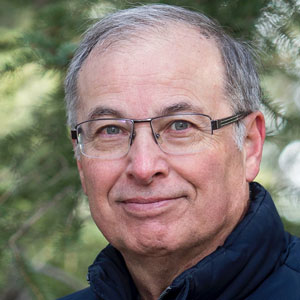
Steve E. Hrudey (Chair)
Professor Emeritus, Analytical and Environmental Toxicology, Faculty of Medicine & Dentistry, University of Alberta
Dr. Hrudey, CM, AOE, FRSC, FSRA, IWAF, FCAE, FEC, FGC (Hon), DSc (Hon), Ph.D., DSc (Eng), P.Eng is a professor emeritus in the Faculty of Medicine and Dentistry at the University of Alberta. He was the 97th president of the Association of Professional Engineers and Geoscientists of Alberta (APEGA) in 2016-17. He has served on 28 expert panels dealing with high-profile environmental health issues, including the Walkerton Inquiry (2000-2002), the Expert Panel on Safe Drinking Water for First Nations in Canada (2006) and Chair of the Water Research Foundation Expert Panel on drinking water disinfection by-products and bladder cancer (Washington, D.C., 2014-2015). In 2017, he provided evidence for Water New Zealand to the national government inquiry into the fatal August 2016 North Havelock drinking water outbreak.
Dr. Hrudey has been engaged in environmental and public health risk research for 49 years and has published extensively (>180 refereed journal articles, 26 expert panel reports, ten books, 29 book chapters, 20 commentaries, and over 80 conference proceedings) in this field. His co-authored 2004 book, Safe Drinking Water – Lessons from Recent Outbreaks in Affluent Nations, has been an all-time best seller for International Water Association Publishing.
Dr. Hrudey was recognized with Alberta’s highest civilian honour, the Alberta Order of Excellence, in October 2017. He was elected as a Member of the Order of Canada in 2020. He was also recognized with a Queen Elizabeth II Diamond Jubilee Medal from the Royal Society of Canada for service to scholarship in science, the 2013 APEGA Research Excellence Summit Award, the top research award (2012 A.P. Black Award) of the American Water Works Association and an honorary D.Sc. from the University of Alberta (2012). He is a fellow of several academic and professional organizations, including the National Academy of Sciences of the Royal Society of Canada, the Society for Risk Analysis, the Canadian Academy of Engineering, the International Water Association and Engineers Canada.
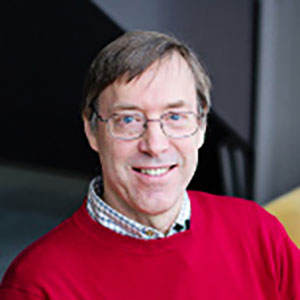
Nicholas Ashbolt
Professor, School of Public Health, University of Alberta
Dr. Ashbolt accepted a position as a professor in the School of Public Health at the University of Alberta in October 2013. Previously he was Title 42 senior research microbiologist within the National Exposure Research Laboratory at the U.S. EPA Cincinnati from January 2007 to October 2013. He was also a professor and head of the School of Civil and Environmental Engineering at the University of New South Wales (UNSW) Sydney, possibly a first internationally for an environmental microbiologist. He has 30 years of experience in health-related water microbiology, mainly in the field of environmental pathogen detection, fate and transport. Over the previous 20 years, he has worked in joint Australian-Sweden and European programs developing methods to interpret pathogen data with the aid of quantitative microbial risk assessment within an urban water sustainability framework. This work has contributed to the risk-based approach adopted in the most recent WHO recreational, drinking water and reuse guidelines. He is an adjunct professor at UNSW-Sydney, Swedish Institute for Infectious Diseases in Stockholm and in the School of Environmental Science and Engineering, Nankai University in Tianjin, China. He has published 32 book chapters, over 200 journal papers and 140 conference proceedings since becoming an academic in 1994.
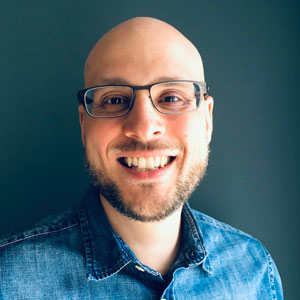
Robert Delatolla
Associate Professor, Civil Engineering, University of Ottawa
Robert Delatolla is an associate professor at the University of Ottawa. His research focuses on biological wastewater treatment, with a particular interest in the application, modification and optimization of wastewater treatment technologies. Professor Delatolla’s research approach is interdisciplinary as it applies microbial, microscopic and molecular methods to improve the current understanding of biological systems at the meso, micro and molecular-scale. The ultimate goal is to enhance the design and operation of engineered treatment systems. His research to date has resulted in the design of the first moving bed biofilm reactor (MBBR) system to remove ammonia from passive treatment systems operating in temperate, northern and cold climates. Professor Delatolla is collaborating with colleagues from the faculties of medicine and science as a primary investigator of the NSERC technologies for microbiome science and engineering (Technomise) CREATE grant. In addition, he collaborates with many local, national and international partners. He recently developed a training program on wastewater treatment and regulations for Environment Climate Change Canada. Professor Delatolla is currently working with the wastewater group of Environment Climate Change Canada to assess wastewater treatment systems for small and Indigenous communities in Canada.
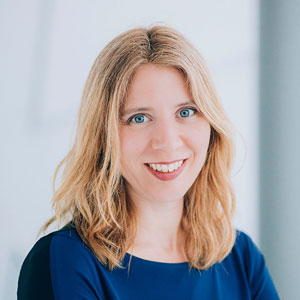
Sarah Dorner
Professor and Canada Research Chair in Microbial Contaminant Dynamics in Source Waters, Polytechnique Montréal
Sarah Dorner, from the Department of Civil, Geological and Mining Engineering at Polytechnique Montréal, held the Canada Research Chair on Source Water Protection from 2007 to 2019. As a member of the CREDEAU at Polytechnique Montréal, a consortium focused on the whole urban water cycle, she researches novel technologies to ensure safe drinking water supplies for communities. Professor Dorner is leading projects on green infrastructure for stormwater control and climate change adaptation, rapid online monitoring tools for identifying periods of highest risk for drinking water contamination, and metagenomics of microbial contaminants (potential pathogens and toxin-producing cyanobacteria) in drinking water supplies. Print and broadcast media frequently solicited her expertise in urban water systems on the impacts of stormwater and sewer overflows on water quality.
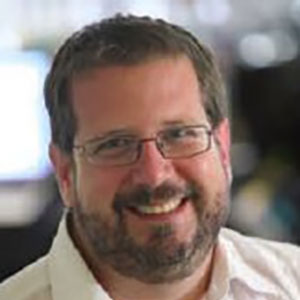
Dominic Frigon
Associate Professor, Civil Engineering, McGill University
Dominic Frigon is an associate professor of environmental engineering in the Civil Engineering Department at McGill University in Montreal, Canada. He holds B.Sc. and M.Sc. degrees in Microbiology from McGill and a Ph.D. in Environmental Engineering from the University of Illinois (Urbana-Champaign). He specializes in sewer microbial ecology, biological wastewater resource recovery and biosolids safety, with an emphasis on the characterization of microbial communities with metagenomics and mathematical modeling. He directs a team working on innovative technologies for surveillance and mitigation of antimicrobial resistance, for reducing excess biosolids while improving their microbiological qualities, and for producing biomaterials and energy from waste. His work in sewer systems aims to develop metagenomics for antimicrobial resistance surveillance and engineer microbial communities to protect infrastructures and enhance downstream resource recovery. During the recent COVID-19 crisis, he has been moderating the sewer epidemiology channel on the CanCOVID workspace that rallies the Canadian scientific response to the pandemic.
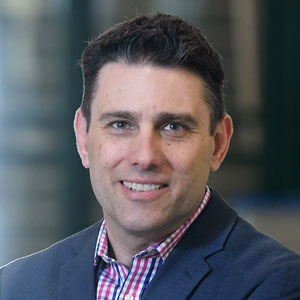
Graham Gagnon
Associate Vice President of Research; NSERC Industrial Research Chair in Water Quality and Treatment; Director, Centre for Water Resource Studies, Dalhousie University
Graham Gagnon, Ph.D., P.Eng., is the associate vice president of research at Dalhousie University. He also serves as the NSERC – Halifax Water Industrial Research Chair in Water Quality and Treatment at the Centre for Water Resources Studies. Dr. Gagnon’s research program addresses emerging priorities for the water industry, which are addressed through fundamental research and translated into industry practice.
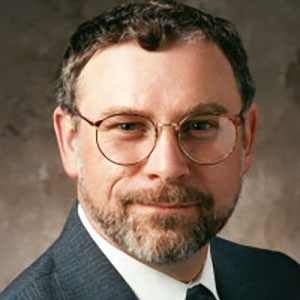
John Giesy
Professor and Canada Research Chair in Environmental Toxicology, University of Saskatchewan
Professor John P. Giesy was born in Youngstown, Ohio in 1948. He is currently a dual citizen of Canada and the USA. Professor Giesy obtained a B.S. Degree, Summa cum laude with honours in Biology, from Alma College. He also obtained an M.Sc. and Ph.D. in Limnology from Michigan State University in 1971 and 1974, respectively. Professor Giesy is a world-leading eco-toxicologist and environmental chemist. He discovered the phenomenon of photo enhanced toxicity of organic compounds, such as PAHs. He was the first to report the occurrence of perfluorinated compounds in the environment. More recently, he has been using e-DNA and e-RNA to assess presence and absence of aquatic species; this includes invasive species, community structures, and effects of chemical and physical stressors. He is a member of the National Academy of Science of Canada in the Division of Earth, Ocean and Atmospheric Sciences, and a Fellow of the Royal Society of Canada. He is included in 40 biographical listings, including Who’s Who in Canada, Who’s Who in America, and Who’s Who in the World. In 2012 he was rated the number one environmental scientist in Canada by the Globe and Mail Newspaper. He has also received many national and international awards, including three major SETAC awards: the Founders Award, the highest award given globally, the Environmental Education Award, and the Global Capacity Building Award. Professor Geisy has served as president and is now a SETAC Fellow. In 2014 he received Miroslaw Romanowski Medal in Environmental Science of the Royal Society of Canada. He has published 1,271 peer-reviewed works. He is the most cited author in the world in Ecology and Environmental Sciences, with an Hirsch (H) index of 126 (Google Scholar®: based on over 70,402 citations to his works). His i10 Index, number of papers cited more than ten times, is 899.
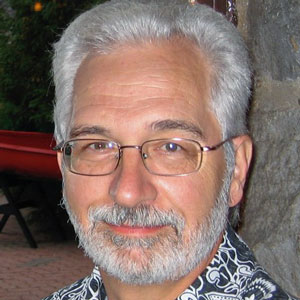
Pierre Payment
Associate Professor, Centre Armand-Frappier Santé Biotechnologie, Institut national de la recherche scientifique
Pierre Payment obtained his M.Sc. in microbiology and immunology in 1971, and his Ph.D. in the same field in 1974, from the University of Montreal. He completed postdoctoral studies at the Baylor College of Medicine in Houston, Texas with Dr. Joseph Melnick, a renowned virologist, under the supervision of Dr. Charles Gerba. During that period, he became interested in the problems associated with the presence of microorganisms in water. He returned to Montreal in 1975 to the Institut national de la recherche scientifique (INRS) – Centre Armand-Frappier Santé Biotechnologie at the University of Québec, where he is currently an associate professor. In addition to his research and teaching activities at the university, he has overseen the Electron Microscopy Laboratory, the Veterinary Virology Diagnostic Services. He is also director of the Technology Transfer Unit and Research Support.
Pierre was very active in clinical microbiology and public health as vice president and president of the Canadian Association of Clinical Microbiology and Infectious Diseases. From 1986 to 1993, he organized their annual meetings with more than 400 infectious disease specialists. Pierre is knowledgeable on many aspects of water treatment and water microbiology; his research activities have mainly centred on the health effects of drinking water. As an expert, he collaborated with the U.S. Environmental Protection Agency, Health Canada, the World Health Organization, Organisation for Economic Co-operation and Development (OECD) and the Walkerton Commission. He also served on the Great Lakes Science Advisory Board.
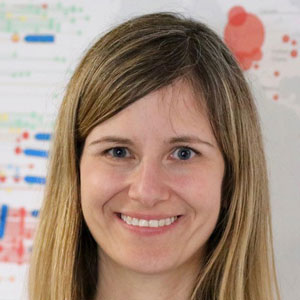
Natalie Prystajecky
Program Head, Environmental Microbiology, BCCDC Public Health Laboratory; Co-Program Head, Molecular and Microbial Genomics, BCCDC Public Health Laboratory; Clinical Assistant Professor, Pathology and Laboratory Medicine, University of British Columbia
Dr. Natalie Prystajecky received her Ph.D. in Pathology and Laboratory Medicine from the University of British Columbia (UBC) in 2010 and has been with the BCCDC Public Health Laboratory since 2011. At the BCCDC PHL, she oversees two laboratories: Environmental Microbiology, focusing on foodborne and waterborne illness, and the Molecular and Microbial Genomics laboratory, an R&D program focused on molecular/genomic ßtest development and deployment. Through her leadership in these two programs, she uses emerging technologies such as genomics to improve routine surveillance and outbreak investigations. Dr. Prystajecky is also a clinical assistant professor in pathology and laboratory medicine at the University of British Columbia. Her research interests are broad, ranging from development of new water quality tests using metagenomics, to targeted resequencing of wetland sediments to study the emergence of avian influenza strains to whole genome sequencing of COVID-19. She is keen to promote the translation of research methods to routine testing in diagnostic and reference laboratories.
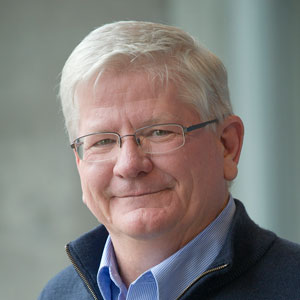
Mark Servos
Professor and Canada Research Chair in Water Quality Protection, University of Waterloo
Professor Mark R. Servos is the Canada Research Chair in Water Quality Protection in the Department of Biology at the University of Waterloo. He is an internationally recognized researcher in the area of environmental assessment and risk of emerging contaminants of concern, including endocrine disruptors, pharmaceuticals and personal care products. Dr. Servos and his group have conducted numerous studies examining the fate, effects and remediation of emerging contaminants in a variety of sectors, including extensive studies on municipal wastewater. His research also develops innovative technologies to remove these contaminants from water and tests remedial actions to minimize their risks. In addition, he is improving frameworks to assess and remediate multiple stressors and their cumulative effects across watersheds.
Professor Servos worked as a research scientist with the Department of Fisheries and Oceans (Great Lakes Laboratory for Fisheries and Aquatic Sciences, 1988-1996) and Project Chief with Environment Canada (National Water Research Institute) (1996-2003) before he joined the University of Waterloo as a Professor of Biology in 2003. Until 2011 he served as Scientific Director of the Canadian Water Network, a national Network of Centres of Excellence, focused on innovation in the water sector. He plays an active role in international scientific societies and served as president of both the International Association of Great Lakes Research and the Society of Environmental Toxicology and Chemistry. He has led or participated in many national and international workshops, projects, committees and panels that address the risks and management of contaminants in the environment and water systems. He recently served as a Synthesis Visitor at the Swiss Federal Institute of Aquatic Science and Technology (Eawag) where he reviewed the history and risks of micro-contaminants in the environment. Professor Servos is a fellow of the Society of Environmental Toxicology and Chemistry. He was recently recognized with Stephen J. Klaine Environmental Education Award for his commitment to innovative interdisciplinary teaching and outreach.
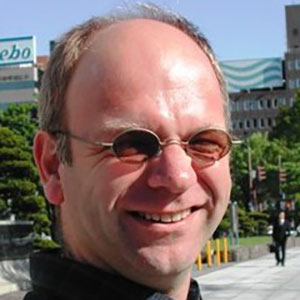
Peter Vanrolleghem
Professor and Canada Research Chair on Water Quality Modeling, Université Laval
Peter Vanrolleghem is a bio-engineer from Ghent University (Belgium), where he specialized in industrial microbiology. His Ph.D. from the same university was a modelling methodology study for wastewater treatment. After nine years as a professor at this university, dealing with a variety of bioprocess modelling studies, he immigrated to Canada in 2006 as holder of the Canada Research Chair in Water Quality Modelling. Most of his research has focused on the monitoring and modelling of water quality in the integrated urban wastewater system, starting from the drop coming out of a cloud or the tap, travelling through storm and combined sewer systems and the water resource recovery facility, until the impacts on lakes and rivers. Starting in the mid-90s, he has been particularly interested in modelling and predicting the fate of (down-the-drain) chemicals of emerging concern and pollution associated with suspended solids.
As a modelling methodology expert with considerable field study experience, he has insights on experimental design, setting up measurement campaigns, and installing sensors and data treatment methods in view of high-quality modelling. The new models he develops are so-called phenomenological: they are based on bio-physicochemical mechanisms, but don’t go into the full details. This makes them manageable in terms of data needs and keeps them focused on solving the problem at hand.
In terms of COVID-19 wastewater-based epidemiology, it is worth mentioning that Peter has collaborated with Christoph Ort (Eawag) on the back-calculation issues due to in-sewer biodegradation of a variety of drugs (ES&T, 50, 13351). He also has a good understanding of measurement and modelling uncertainties in decision-making. With the Danish Technical University, an extensive model library was developed for dynamic priority pollutant fate throughout the overall wastewater system. This model library covers most processes that may affect the fate of SARS-CoV-2 as it travels through the sewer system.
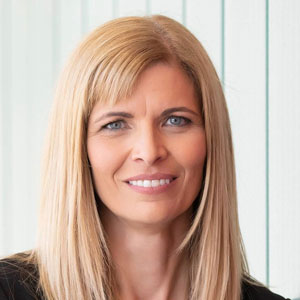
Viviane Yargeau
Professor and Chair of Chemical Engineering, McGill University
Dr. Yargeau is a professor and chair of the Department of Chemical Engineering at McGill. Her research focuses on the treatment of wastewater and the fate and effects of contaminants in the environment and engineered systems. She has contributed to creating awareness about the presence and impact of trace contaminants in water and to the development of improved wastewater treatment technologies for the protection of our water resources. Dr. Yargeau has been doing research on wastewater-based epidemiology (WBE) since 2008 and joined the European group SCORE in 2014 to contribute to the development and deployment of the WBE approach. She also worked in close collaboration with Statistics Canada for the design and implementation of the pan-Canadian pilot project on wastewater-based monitoring of drug consumption in the context of the legalization of cannabis in October 2018.


